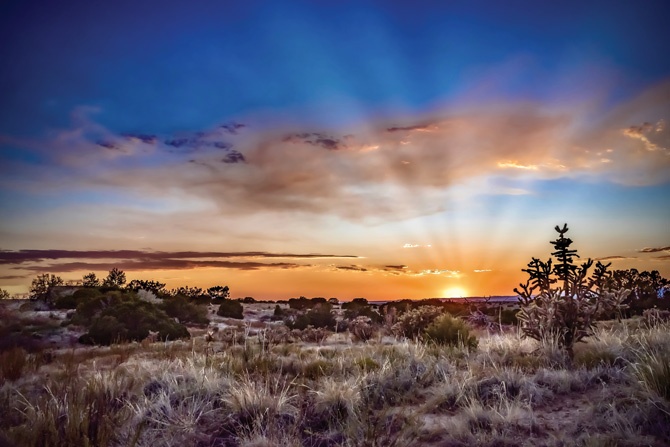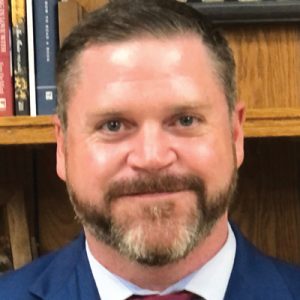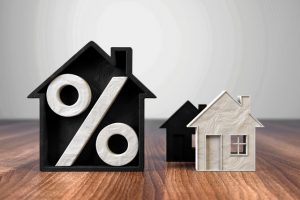This will be my last article as the President of the NMBA for what unforeseeably ended up as a two-year term. Satirically, my tenure might best be articulated through the opening line of A Tale of Two Cities by Charles Dickens, “It was the best of times, it was the worst of times.”
Although I was named President in June 2019, my tenure truly began in the fall of 2019 when John Anderson, EVP, and I completed the annual road trip around the state visiting with bankers and legislators on subjects mainly pertaining to the state of our industry and our economy at the time. Eddy and Lea counties were experiencing one of the largest oil booms in history. The State of New Mexico was enjoying record tax revenues as a result of that boom. The national economy was exceptionally strong, inflation was under control, and the unemployment rate was at its lowest levels since 1969. Our biggest problems included finding qualified employees at reasonable wages, dealing with the growing pains of the boom and lobbying Santa Fe to return some of those tax dollars to bolster the failing infrastructure in the southern part of the state. We warned legislators of the volatile nature of the oil industry and suggested that they be extremely cautious when deciding the allocation of the additional tax revenue. Little did I know that advice would become more of a premonition than a recommendation.
Within six months after our trip, the entire world would be stricken with a viral pandemic resulting in the shutdown of the national economy, oil prices would fall below $0 for the first time in history, interest rates would decrease to all-time lows and unemployment would skyrocket; not to mention the millions of people who became sick and many thousands lost their lives.
Who could have imagined that in such a short period of time, we would change the way we work, the way we think and the way we socialize? During this time, we learned many new words and phrases such as masking, double masking, social-distancing, essential business, vaccine passport and self-isolating, amongst many more. Virtual meetings became the new norm. I don’t think I am alone in the contempt I feel for virtual meetings.
“A pessimist sees the difficulty in every opportunity and an optimist sees the opportunity in every difficulty.” And “Without a measureless and perpetual uncertainty, the drama of human life would be destroyed.”
The 2020 30-day legislative session in New Mexico went on as normal. I was able to join John at the Capitol to visit with our lawmakers and sit in committee hearings. We didn’t suffer any major defeats during that session, nor did we have any major wins, as the bulk of the session was engaged in quibbling over how to spend the windfall tax revenue. Shortly after the session, the world completely changed as we knew it. Many books will be written about the events that occurred during 2020. I have to mention that somewhat ironically, remembering our advice to legislators on expenditures of tax revenue during our road trip, the New Mexico Legislature was forced to call a special session, held virtually, during the summer of 2020, in an attempt to deal with the hundreds of millions of dollars in the state budget shortfall. Apparently, they didn’t take our advice.
The 2021 Legislature was a different story. It was conducted entirely virtual. This posed many issues for our association and our industry. The most important legislation introduced negatively affecting our industry was the State Bank bill and the legislation altering our laws governing liquor licenses. Although we were successful in defeating the State Bank, we and the liquor industry were unsuccessful in derailing the liquor license legislation. Not having the ability to represent our industry at the Capitol, in-person during the session potentially played a role in that defeat. Although many of us were able to testify virtually, face-to-face representation is vital and essential in the political process.
However, I do believe there is a positive aspect to virtual meetings in the fact that many more advocates of our industry will have the ability to testify without the expense and time of travel; however, I feel very strongly that we should always have in-person representation to take part in the discussions that often occurs behind closed doors after the cameras are turned off. Not having that face-to-face representation is very dangerous in politics.
Another product of the pandemic was the Paycheck Protection Program (the PPP) as included in the CARES Act, which occupied the bulk of many banker’s time during 2020. In my opinion, if it were not for this program, our local and national economy would look much different than it does today, and in a very negative way. I know for certain that many small businesses across the country would have declared bankruptcy and closed their doors forever if it were not for the PPP. The lack of these funds would have been nothing short of a catastrophe for small-business owners, their employees, their communities, their banks, and the entire national economy. If anyone ever questions the role that banks play in our local, regional, and national economy, this is a great example. Banks of all sizes, especially community banks, went above and beyond to implement this program for no other reason than attempting to do everything in their power to help their customers at a time when they needed it the most. It is terrifying to think of where we would be if the PPP had not existed and if the banks had not stepped up to implement the program for its customers.
In summary, what lessons have we learned from the events of the past two years? I can only speak for myself, but I feel it is far too early to articulate and/or understand the entirety of what transpired, let alone the unintended consequences that may result from the decisions made during this period of time. Personally, I have learned that life the way we know it is much more fragile than I ever imagined, and face-to-face interaction is vitally important, not only for our industry but for human nature itself. The United States and our capitalistic system have demonstrated once again to be the best the world has ever known, even with our many flaws. And lastly, I have never been more grateful and proud to be a community banker.
The only regret I have in my tenure as President was that I was unable to implement the NMBA Internship Program and partnership with NMSU. However, I vow to continue leading our efforts in implementing this program under our new President, Lonnie Talbert of Southwest Capital Bank. And jokingly, as my Grandfather used to say, “You can accomplish a lot if you don’t care who gets the credit!” I would be delighted for Mr. Talbert to get that credit. But seriously, anyone closely involved in our association knows that Liz Earls of US Bank is the true pioneer and engine behind the entire NMBA internship program and truly deserves any and all credit for its past and future success.
I would like to sincerely thank John Anderson for the guidance, wisdom, patience, and kindness that he has shown me over the last two years.
In closing, I am truly humbled and honored to have served as your President of the NMBA for two terms. I would like to sincerely thank John Anderson for the guidance, wisdom, patience, and kindness that he has shown me over the last two years. I am also honored to hand the gavel to Lonnie. I have every confidence he will carry on the mission of the organization, and I look forward to assisting him in any way I can.
I want to end with two quotes by the late Winston Churchill, “A pessimist sees the difficulty in every opportunity and an optimist sees the opportunity in every difficulty.” And “Without a measureless and perpetual uncertainty, the drama of human life would be destroyed.”
Thank you for allowing me to serve as your President.








